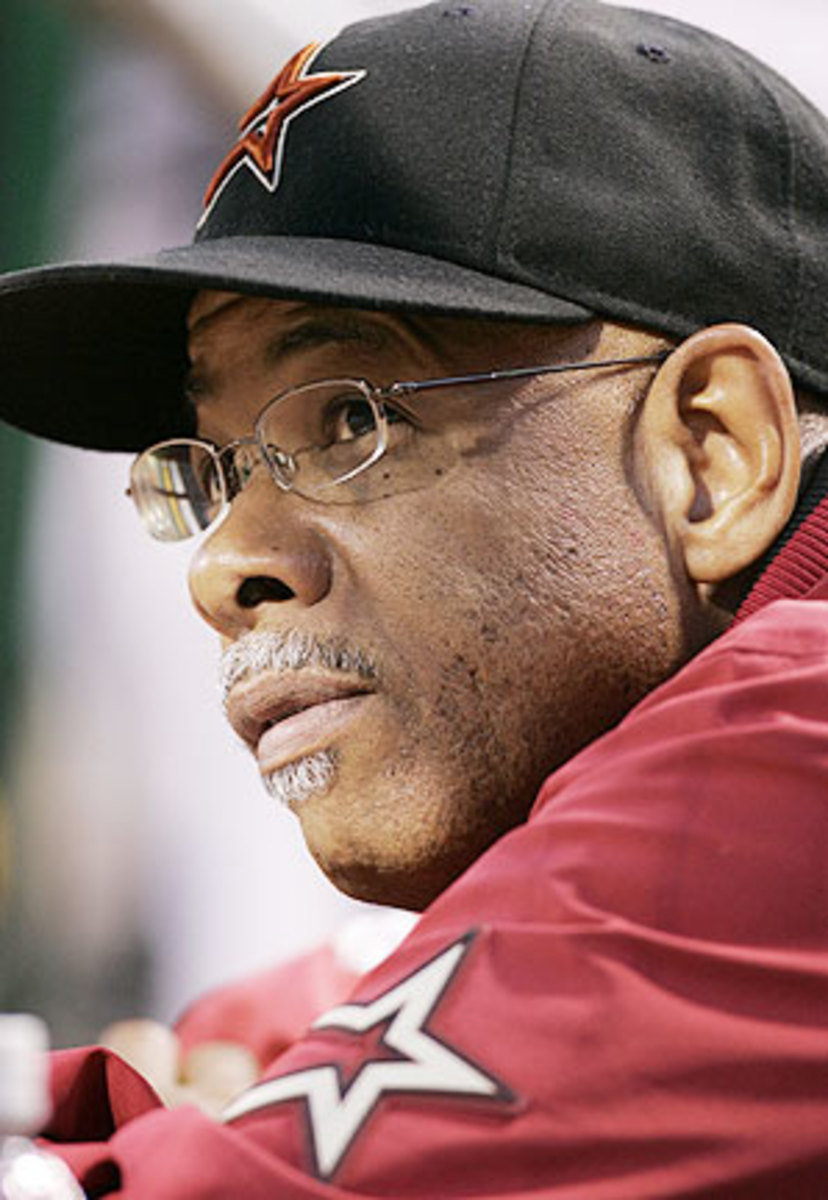
Cooper had no chance in Houston, and neither will his replacement
Cooper's dismissal is not surprising but it is instructive, just another example of the hot-coal walk that is managing in the big leagues. Even if you make it across to the other side, you're bound to get burned, and Cooper was. Burned by a poorly constructed team that never had a real chance to compete in its division. Burned by financial limitations that kept the Astros from being a player in the free-agent market. And burned, most significantly, by a clubhouse that included several players, it's been reported, who either didn't respect him or his decisions as a manger.
It is this last factor that may have been Cooper's ultimate demise. According to a report on Monday in the Houston Chronicle, Astros players had taken to wearing T-shirts reading "Really?" which supposedly indicated their befuddlement over their manager's handling of the team and game situations. He was forced to apologize earlier this season to since-departed catcher Ivan Rodriguez after he failed to congratulate Pudge on passing Carlton Fisk for the most games caught by a catcher in major-league history.
Had the Astros been winning, such instances might have been overlooked. But aside from a two-week stretch in July that saw them pull within a game of first in the NL Central, they were never a serious threat to reach the playoffs. After peaking at 50-46 on July 24, they've amassed the second-worst record in the National League, going just 20-33 while their season slipped away. Without clubhouse support and without a winning record to take some of the heat off him, it was only a matter of time before Cooper's tenure as Astros manager came to an end.
To be sure, this was not an easy situation for any manager to be in, especially one as unseasoned as he was. Cooper inherited an underwhelming team late in the 2007 season upon the dismissal of then-manager Phil Garner. His only previous managerial experience came when he spent two seasons managing the Brewers' Triple-A franchise, where he put together back-to-back losing seasons in 2003 and 2004 before moving to Houston as bench coach. It's rare that any manager can step into his first big-league job and be adept at maneuvering the maze of egos that inherit any big league clubhouse. It's tough to suddenly be charged with not only dousing fires of controversy but preventing them as well. Tougher still is being held accountable, and often taken to task, for being, as some managers have noted, the one who makes decisions, rather than suggestions.
If Cooper was not necessarily a great fit, neither was this team. The Astros are old and it shows. They have only two position players younger than 29, and when veterans like Miguel Tejada and Lance Berkman stopped producing as they did in their prime, their offense was rendered largely punchless. The pitching staff is in a similar spot. Wandy Rodriguez has turned in a fine season, but aside from him and Roy Oswalt, the Astros don't have a single starter with either a winning record, an ERA below 4.80 or even 100 strikeouts.
Their payroll is north of $100 million, but they don't have much to show for it. They spent less than $8 million total on five free agents last winter, and the biggest names added were Mike Hampton, a fragile 36-year-old who hadn't pitched a full season since 2003 and who is, predictably enough, hurt again, and Rodriguez, a 37-year-old catcher who batted just .251 with a .280 OBP before being shipped out of town. The previous winter, they gave out just one multi-year deal, to second baseman Kaz Matsui, whose batting average has dropped over 40 points, his on-base percentage over 50 points and his slugging percentage by 75 points since last season. They are on the hook for over $50 million for next year, and that's before going to arbitration with Rodriguez and All-Star outfielder Hunter Pence, their only decent young position player. Both Oswalt and Berkman have started talking openly about retirement and Jose Valverde, their quality closer, will be a free agent at year's end and may not return. That means the burden for next season and beyond rests more with the front office, and whether or not they can restock the team with quality players, than it does with the field manager, whoever it may be.
This year's manager couldn't get a team this ill-fitting to win in 2009. It's doubtful anybody will be able to any time soon, either.




